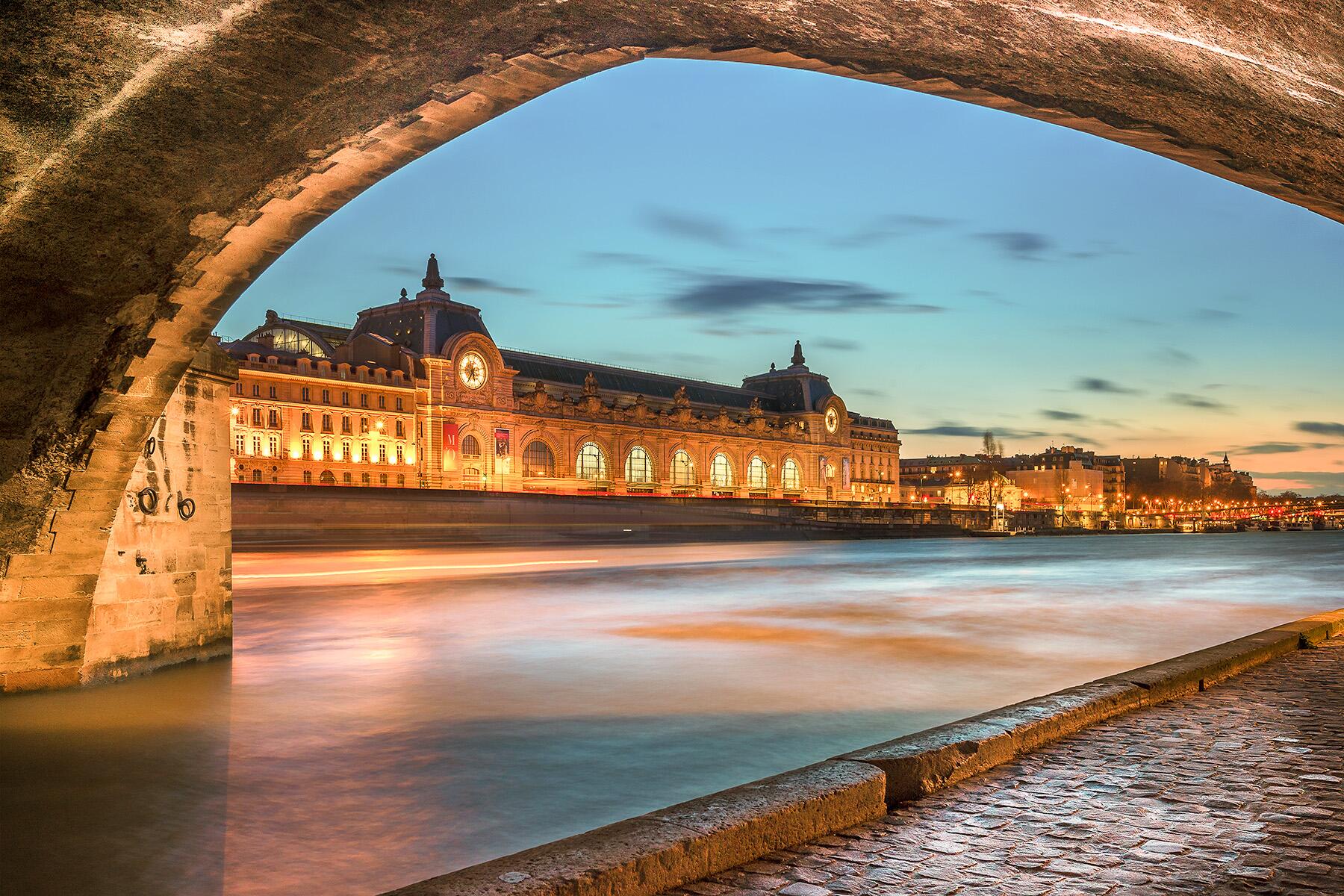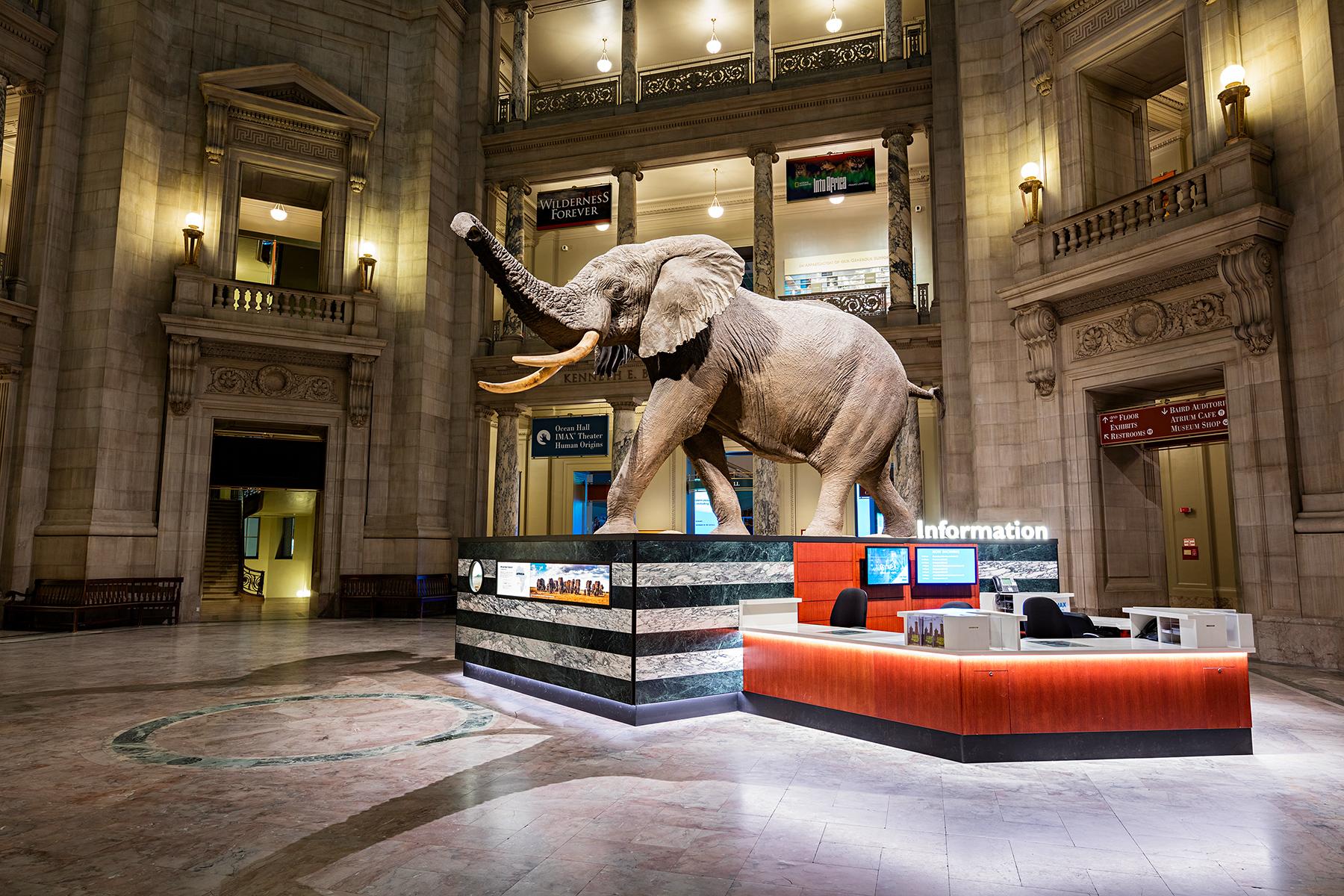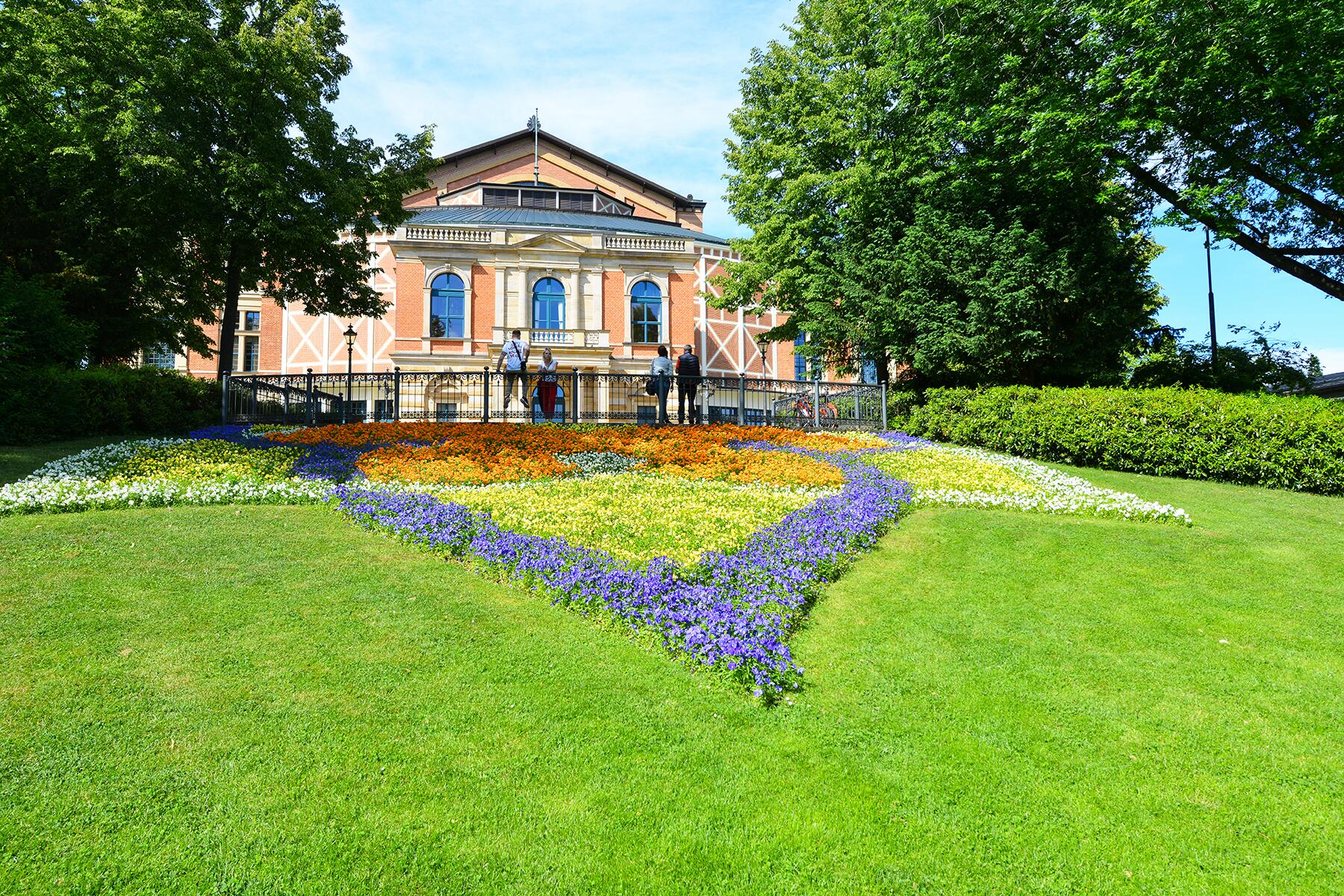And why can it take up to 10 years to score a ticket?
First, let me set the stage for you—literally. It’s got a double proscenium structure, which makes it seem that the action takes place far away from the audience, in a dreamy, mystical, mythical past. You never see an orchestra or a conductor, because they are hidden in a kind of dark underworld, beneath the stage.
And going to the production is like undertaking a religious pilgrimage, and the audience is as physically uncomfortable as church-goers probably were in the 1870s—when the theater was actually built. For l7 hours, spread over four nights, your poor, immobilized butt is perched on a wooden bench. Bringing your own cushion is forbidden, as it may make a sound or two if you fidget. But if you stand in line and are fortunate, you will be able to borrow one of the theater’s cushions.
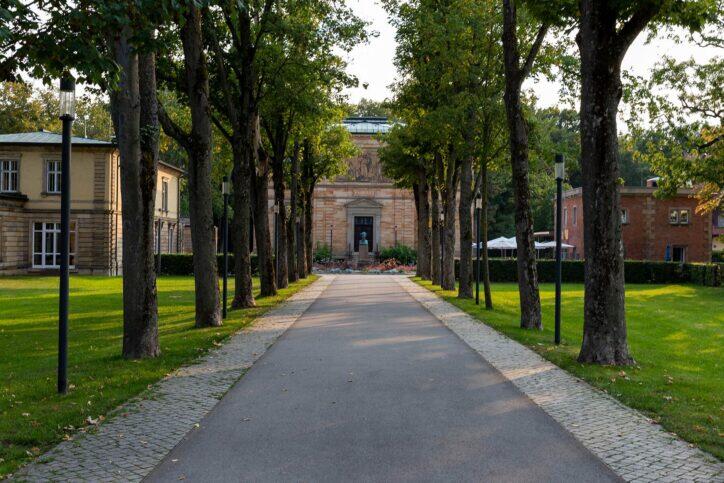
The play is performed during the summer months, and you would probably like nothing more than the solace of cool air. Alas, you must swelter in silence because no changes have been made to the original theater, constructed when air conditioning did not exist.
Happily, there are intermissions but hope that nature doesn’t call too often because if you go out during the production, you can’t get back in until the official break. Oh, and one other thing: it’s entirely in German, with no supertitles projected above the stage.
So why would you want to go? Because it is the most coveted experience in the opera world and it can take 10 years—if you are lucky—to score a ticket. The ticket booth agent told me there are half a million applicants, and only 6,000 seats available each year. It’s Richard Wagner’s Ring Cycle (aka Der Ring des Nibelungen), and is widely regarded as the most sophisticated, theatrical, and brilliant expression of opera (which Wagner referred to as “music theater”). You can occasionally see performances of the Ring Cycle in other opera houses around the world, but nothing compares with traveling to Bayreuth, Germany, to watch the saga unfold in the Festspielhaus theatre which Wagner himself designed for the sole purpose of staging his works. It is a shrine to his genius, and music pilgrims come from around the globe to imbibe the music, words, and story of the master. About every five years, there is a new stage director and a new interpretation of the Ring, and some of them are wild, avant-garde, daring, and provocative. The advent of a new production has the music world buzzing, and the next one premieres in 2022.
Recommended Fodor’s Video
The Ring has four parts: The Rhinegold, The Valkyrie, Siegfried, and Twilight of the Gods. The one-minute version of the story is that the gold of the Rhinemaidens is stolen and part of it is forged into a ring by the Niebelung blacksmiths. Whoever owns the ring rules the world. (Sound familiar?) Wotan, the one-eyed supreme god, steals the ring and the gold and promises them to two giants for building Valhalla, the palatial home of the gods. When Valhalla is completed, Wotan tricks the giants out of their payment. Wotan has a beloved daughter, Brunhilde, who rides to battlefields with the female Valkyrie to gather heroic dead warriors and bring them to Valhalla. She wants to help Siegmund, her father’s son who is part god and part human and disobeys her father’s wishes. He consigns her to a living hell—she will be exiled forever from the gods and put to sleep on a remote rock with a fire burning around her. She will only be awakened by the true love of a hero. That hero is Siegfried, the son of Siegmund, and he gives Brunhilde the ring as a sign of his devotion. Siegfried is drugged and under the influence of the potion betrays the awakened Brunhilde. She kills herself and Valhalla burns, ending the reign of the gods and the power grab for the ring.
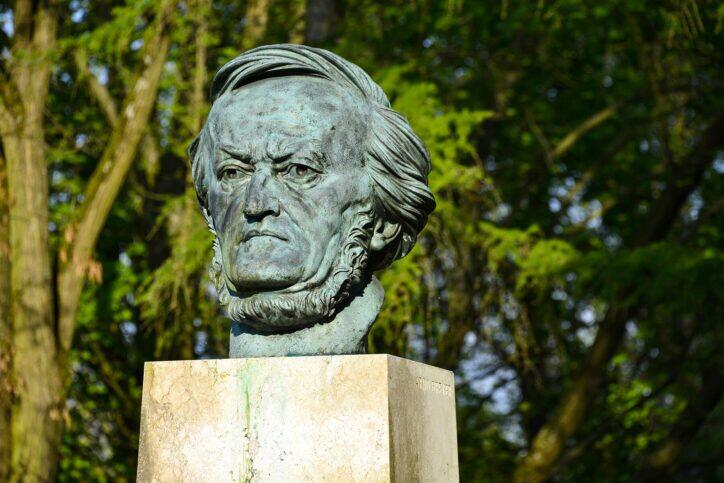
The Ring Cycle is a tale of love, hate, betrayal, suicide, murder, incest, passion, war, wealth, power, retribution, greed, more greed, divinities, humans, and ultimately the destruction of the gods and a world bereft of gods and left to its own devices. Wagner’s inspirations were Nordic myths and German folk tales, and if you are a Tolkien fan you will certainly recognize Wagner’s influence.
I first heard the music from the Ring when I saw Francis Ford Coppola’s Apocalypse Now. I can still hear The Ride of the Valkyries echoing in my ears, as military helicopters swooped and soared through the sky to the pounding, driving music. I encountered Wagner’s music again in The Blues Brothers and What’s Opera Doc? I determined that one day I would go to Bayreuth, and worship at the temple of Wagner.
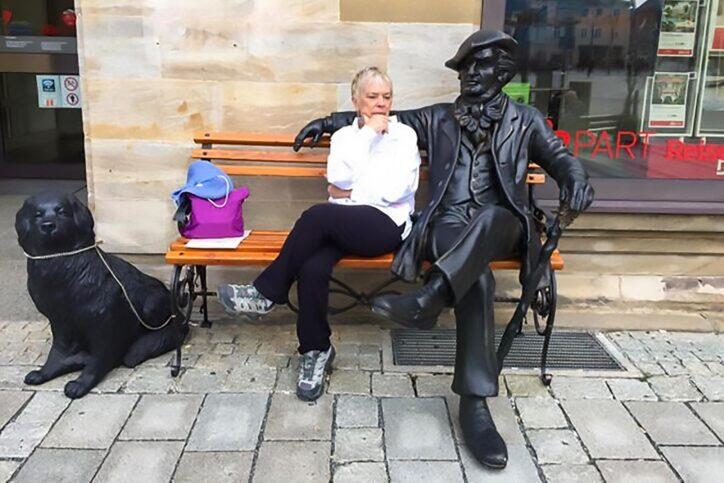
Finally, I went and found myself surrounded by highly knowledgeable, passionate Ring fans and aficionados from around the world. “Coming here is the highlight of my life,” Miko from Japan told me. “I have known Wagner’s leitmotifs from my father since I was a child.” The leitmotifs she was referring to are Wagner’s magnificent recurrent themes that are written for different characters, places, and even a sword. A British music critic who sat next to me confessed that he comes to see three or four performances of each new production, and added, “It’s my form of devotion. The Ring is our modern version of ancient Greek dramas.” An American woman, who was dressed in a red gown with a matching parasol for The Rhinegold, confided that she ships her glorious attire in trunks, and wears a different color-coordinated outfit for each night of the production. A musician from Germany explained that he plays the “Wagner tuba,” which the composer invented. “I have played in productions of the Ring before, but Bayreuth is Mecca.”
Inside the theatre, I was stunned. The audience sat for hours without moving, squirming, coughing, or sneezing. When the curtain came down at the end of each night, they stomped their approval loudly and insistently on the wooden floor. They vocally booed the conductor when they disapproved of his interpretation. During the hour-long intermissions, they ate and talked Wagner over dinner in the dining room. Or they parsed the production as they stood in line for beer and Bratwurst. And after each marathon night, they went to nearby restaurants where the waitstaff joined the animated discussions of the pros and cons of the current production. There is much drinking and merriment and bonding with fellow Wagnerians. And during the day they explore the charming 18th-century Bavarian town of Bayreuth, which features statues of Wagner, the Wagner Museum in his former house, and even ATMs that bear his image.
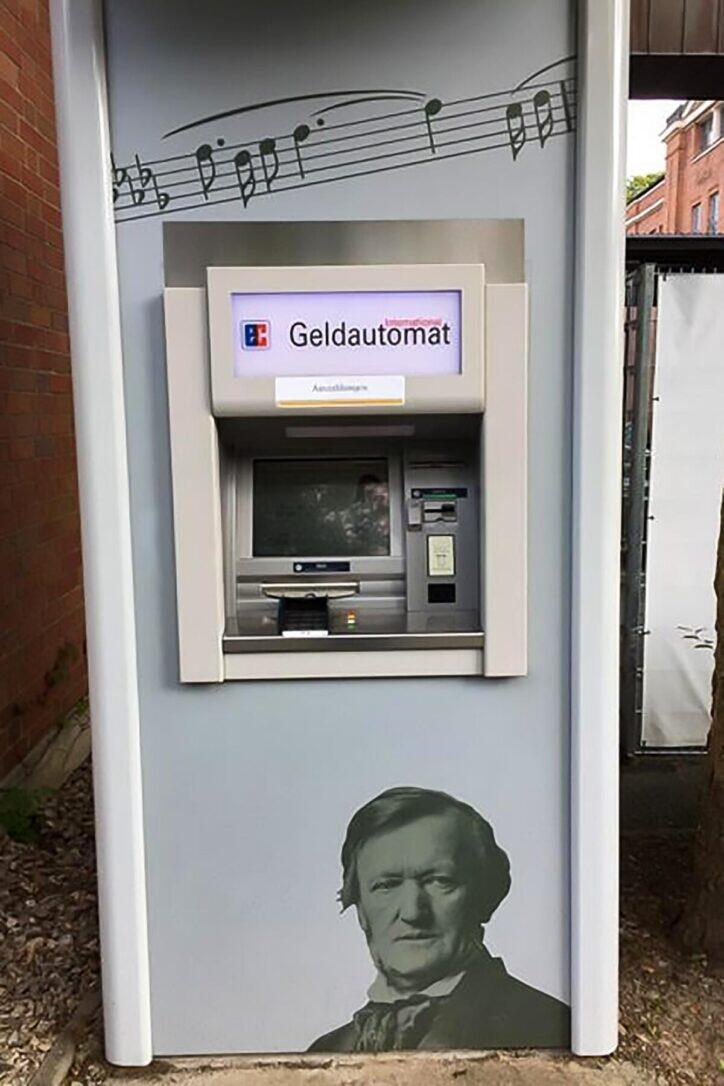
I left with a mystery on my mind. How can Wagner, by most reports a miserable, disloyal, foppish, rabidly anti-Semitic man, have composed such brilliant, transcendent music and written such soaring paeans to love? Without ever forgetting who the human being was behind the magic, I nonetheless have joined the ranks of the Ring-obsessed devotees and anxiously await the day when I can return to Bayreuth.
